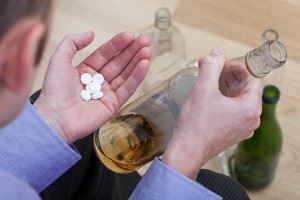Symptoms of Drug Use
When you have a lingering suspicion that your friend or a family member has gotten involved with drug use, it can be a sinking feeling. You may feel frustrated, guilty, angry, sad, worried or any combination of emotions. You may feel overwhelmed, not knowing what to do, and helpless, wondering if you can even have an impact.
The good news is that your intervention with your loved one can truly make a difference. Your honest care and concern can help someone seek rehab and heal from a substance use disorder for good. Don’t jump ahead of the process, though. First, you’ll want to confirm that substance use is at play before making unfounded accusations.
Look for the following signs and symptoms of drug use before having a conversation about getting help.
Signs of drug use
There are two categories of signs you’ll want to start noticing. The first is behavioral signs of drug use. These signs can be spotted even in the early stages of drug use before a full-fledged addiction has developed, and will become more clear as the dependency develops.
- acting secretively
- hiding drugs and drug paraphernalia
- missing commitments to use drugs or to hide being under the influence
- lying or making excuses regarding finances
- spending time with people you don’t know
- texting or calling numbers you’re unfamiliar with
- avoiding questions about drug use or changes in behavior
- spending time with a new social group
- giving vague answers regarding where they’re going
- wanting to do things alone
- acting defensive
- appearing on-edge, or hypervigilant, always watching their back
- changing moods with no apparent reason (this is a sign of withdrawal)
- seeming to get lost in thought
- fluctuating between elation and depression
- negative self-talk
- poor self-esteem
- neglecting appearance
- participating in increasingly dangerous behavior
- loss of employment
- broken relationships
- mounting stress
While someone who struggles with a substance use disorder may be able to hide their addictive behaviors at first, as a dependence builds, the evidence will become more and more apparent. Soon, even those who aren’t considered close family and friends will start to notice signs and symptoms of drug use.
Drug use symptoms
The second category of signs and symptoms of drug use is the physical consequences of addiction. Some of these may be observable changes, and others you may only catch by listening closely to your loved one.
- feeling euphoric
- alertness
- heightened senses
- red eyes
- dry mouth
- dizziness or lightheadedness
- poor coordination
- feeling invincible
- slow reaction time
- poor decision making
- difficulty remembering things
- nausea and vomiting
- anxiety and paranoia
- muscle tension or spasms
- hallucinations
- increased heart rate
- psychosis
- violent or aggressive behavior
- accident-prone behavior
- coma
- seizure
- other withdrawal symptoms
As an addiction develops, so do drug use dangers. These and other problematic drug use symptoms will increase with time and eventually prevent a person from living a normal, daily life. If your friend or family is struggling to complete tasks that were once easy, it’s likely that a substance use disorder has set in.
Seek emergency help if someone you know has used substances and any of the following has occurred.
- Changes in consciousness (unresponsiveness, passing out, etc)
- Potential overdose
- Trouble breathing
- Demonstrates signs of a possible heart attack, such as chest pain or pressure
- Seizures or convulsions
- Slowed heart rate
If your loved one has shown behavioral or physical signs and symptoms of drug use, it’s time to have an important conversation.
What to say
Let the dangers of drug use convince you that now is the time to intervene. Waiting could be harmful, and you could be the catalyst for your friend or family member to begin seeking professional care. Knowing when to intervene is only half the preparation, though. You’re surely wondering what to say.
There is no exact formula that will guarantee a breakthrough for your loved one. However, there are some important topics to cover that will have an impact. Here is a few points to hit on.
- Say that you care: this conversation isn’t about judgment, but about empathy. Your comments will go over much better if you open the chat with compassion and respect.
- Say what you’ve noticed: reported observed behaviors is one of the best ways to explain why you think drug addiction is at play, and listing what you’ve seen is harder to deny than a straight-out allegation of substance abuse.
- Say what you think should happen next: explain that while you aren’t a professional, you know that the best hope for recovery is through rehab and treatment. Consider offering local resources or options nearby for inpatient treatment if your loved one is open to the idea.
- Say that you’re willing to listen: leave the floor open for your loved one to reply or explain behaviors. Even though your family member or friend may still deny a drug problem, you’ve laid the groundwork for future conversations and have shown that you care enough to help if he or she has a change of heart.
These steps aren’t guaranteed to get your loved one on the path to recovery, but after noticing signs of drug use and having this pivotal conversation, you can rest easy knowing that you did what you could and the rest is up to your loved one.
Regardless of how bad drug or alcohol use has become, help is always available. Contact Freedom Detox to get evidence-based treatment from providers who care. Get back on track to a healthier, happier life.










